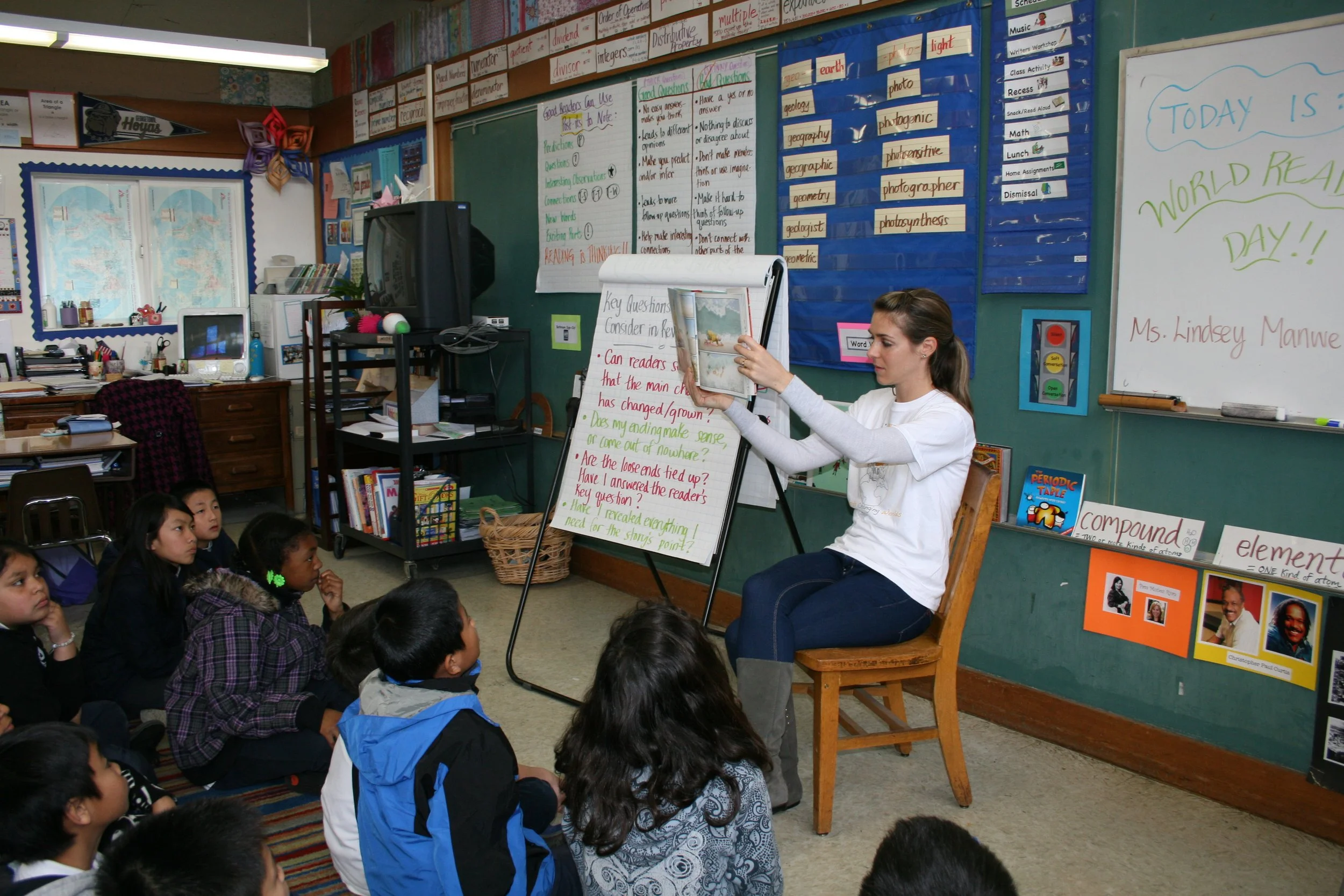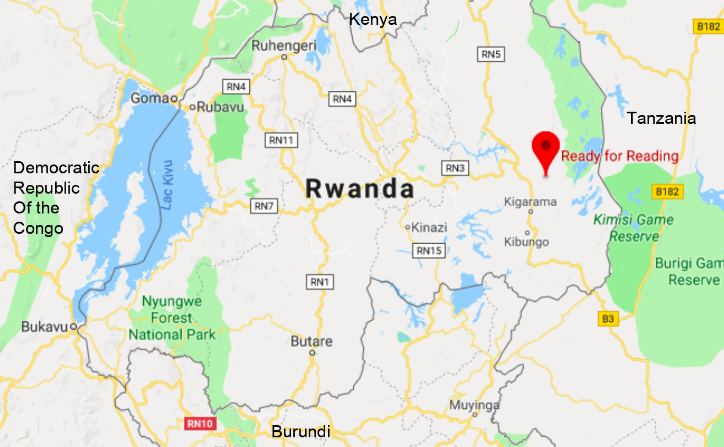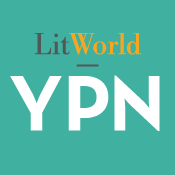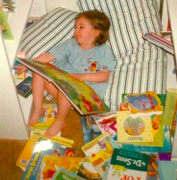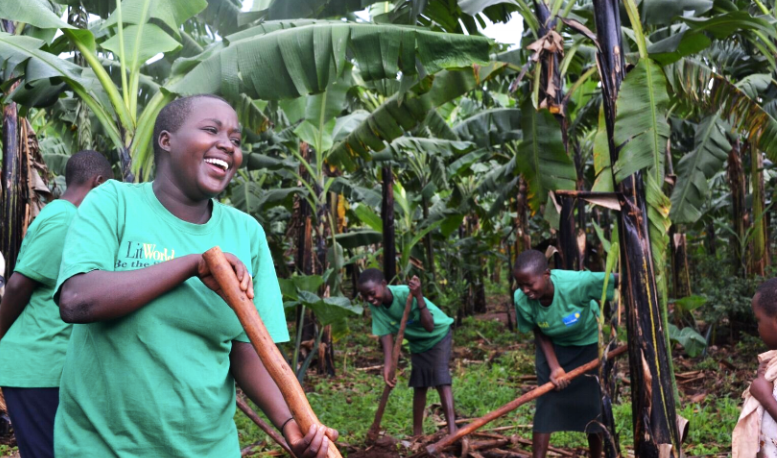Our Storytelling & Advocacy Coordinator spoke with Kate Messner, an award-winning author of children's books and middle-grade novels and a long-time World Read Aloud Day advocate (or WRADvocate) about her writing process, the power of reading aloud, and her latest novel, Breakout, which hits the shelves on June 5th this year.
Tell us a bit about Breakout. What inspired you to come up with the plot and characters for this novel?
The spark for this novel was a real-life prison break, when the escape of two inmates from Clinton Correctional Facility in Northern New York in June of 2015 launched a 23-day manhunt, all through the Adirondack Mountains and beyond. As a person who lives just fourteen miles from the prison, I was completely unnerved by the idea of two murderers lurking in the woods. But as a former journalist—I was a TV news reporter and producer for seven years—I was absolutely fascinated. So after the escape, I spent several days hanging around the prison in Dannemora. I sat at the coffee shop across the street from the prison and talked with people—police officers who had just come in from searching the woods, neighbors of the prison whose kids weren’t sleeping at night, relatives of inmates who couldn’t visit their loved ones while the prison was on lockdown. Everyone had a story, and that was the spark for the novel that would become Breakout.
Why did you choose to tell the story in letters, poems, text messages, news stories, and comics?
My first draft of Breakout had a more traditional structure. It was written in first person, narrated by Nora Tucker, the prison superintendent’s daughter. But when I shared this draft with writer friends, they were intrigued by the other characters, so I started thinking this story might be better served by an unconventional structure. I came up with the idea of a novel-in-documents…a series of letters, text messages, photographs, comics, petitions, recorded conversations, and even recipes that Nora collects for her community time capsule project. It allowed me to explore issues of privilege and perspective so much more than I’d have been able to with a single point of view.
How does Breakout relate to your larger body of work? What drew you to these themes of mystery, heist, and even suspense in your latest novels (Hide and Seek, Manhunt)?
As a reader, I’ve always loved exciting stories that keep me up late at night while I’m reading, but also leave me thinking about big ideas after the last page is turned. That’s what I hope readers take away from my Silver Jaguar Society mysteries as well as Breakout.
As a writer, how do you change your approach from writing middle-grade and young adult novels to picture books? When you get an idea for a story in your head, how do you know whether to pursue it as a novel or a picture book?
Usually, when I have an idea for a book, I can “see” right away whether it’s a picture book or a longer form of storytelling. For me, the genesis of a picture book is about words and images—I can hear the poetry of the story and see the illustrations, page turns and all. By contrast, my novels most often catch fire with a character’s voice and an idea I’d like to explore.
For many, picture books are an obvious choice for read alouds. But do you feel middle-grade novels can and should be read aloud too? If so, how does the read aloud experience change between mediums, and why are middle-grade novels often overlooked as a read aloud choice?
I think smart teachers, librarians, and families have always understood that read alouds aren’t just for little kids—that picture books are for everyone and that novels make for amazing shared reading experiences, too. Personally, I’d love to see a world where we share both picture books and chapter books/novels as read alouds throughout our kids’ reading lives. A picture book read aloud is such a lovely moment that can be revisited over and over, while a shared novel is special because it’s an experience that builds on itself with every chapter. That can spark so many great conversations, and the next chapter is something to look forward to every day.
How does your experience as an educator factor into the way you approach writing for kids, teens and young adults?
I taught middle school English for fifteen years, so I still have the voices of more than a thousand seventh graders in my head. (That might sound scary, but really, it’s wonderful!) Having spent so much time with middle grade readers really helps me when it comes to understanding their concerns, their sense of curiosity, and their voices. My years in the classroom also left me with an even greater respect for kids as readers, thinkers, and citizens, and I think that’s essential to writing for this age group. You can’t connect with readers unless you write in a way that respects kids.
Which books, writers and illustrators have had the greatest influence on you as an author throughout your career?
When I was a young reader, my two favorite authors were Beverly Cleary and Judy Blume. I loved Beverly Cleary’s Ramona books, especially, because I saw so much of myself in excited, curious, imperfect Ramona. That’s one of the reasons I’m such a big advocate for books that reflect all kinds of kids’ lives, and that show all kinds of faces on their covers. Every child deserves their own version of my Ramona. I loved Judy Blume’s books, too, because they were great stories that pushed me to think about things that were outside my comfort zone. I could sense that she understood and respected kids, and I trusted her to tell the truth. That’s something I think about a lot in my own writing life as a result. (Thank you, Judy and Beverly!)
Thank you, Kate!
Kate Messner
is passionately curious and writes books that encourage kids to wonder, too. Her titles include award-winning picture books with Chronicle Books, like Over and Under the Pond, Up in the Garden and Down in the Dirt, Tree of Wonder, and How to Read a Story; novels like Breakout, All the Answers, and The Seventh Wish; and the popular Ranger in Time chapter book series about a time-traveling search and rescue dog. Kate lives on Lake Champlain with her family and is trying to summit all 46 Adirondack High Peaks in between book deadlines.


